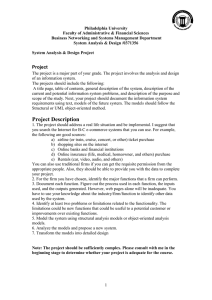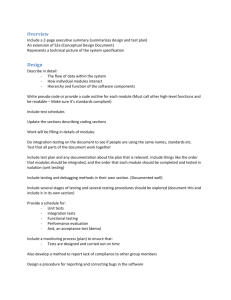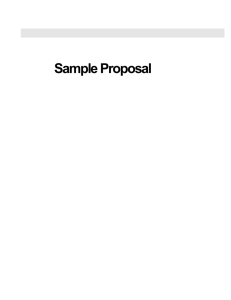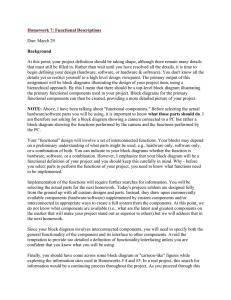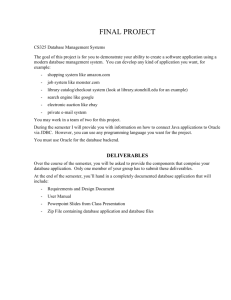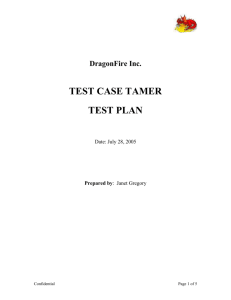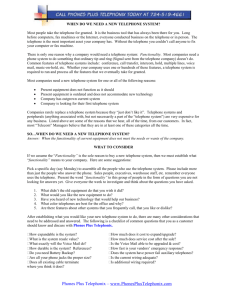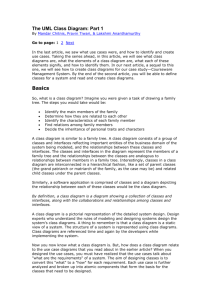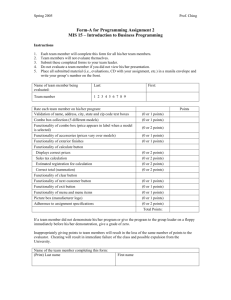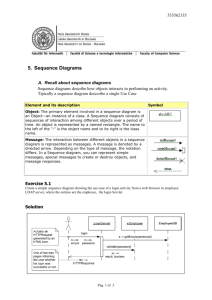MIS 6308 Project: Systems Analysis & Design Assignment
advertisement
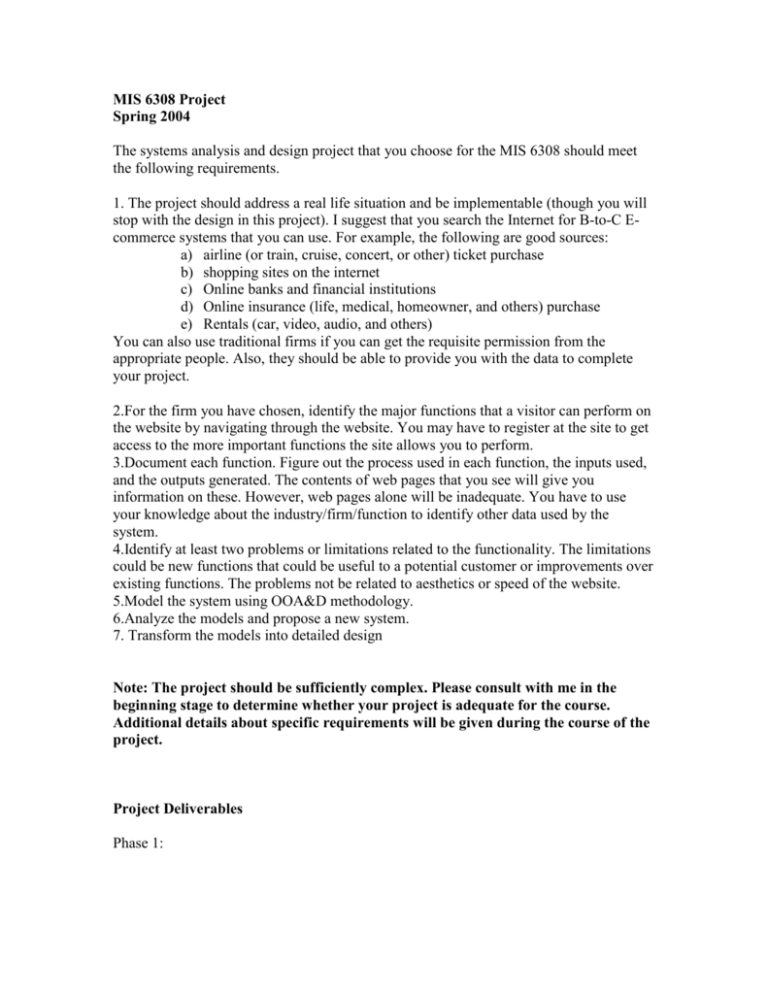
MIS 6308 Project Spring 2004 The systems analysis and design project that you choose for the MIS 6308 should meet the following requirements. 1. The project should address a real life situation and be implementable (though you will stop with the design in this project). I suggest that you search the Internet for B-to-C Ecommerce systems that you can use. For example, the following are good sources: a) airline (or train, cruise, concert, or other) ticket purchase b) shopping sites on the internet c) Online banks and financial institutions d) Online insurance (life, medical, homeowner, and others) purchase e) Rentals (car, video, audio, and others) You can also use traditional firms if you can get the requisite permission from the appropriate people. Also, they should be able to provide you with the data to complete your project. 2.For the firm you have chosen, identify the major functions that a visitor can perform on the website by navigating through the website. You may have to register at the site to get access to the more important functions the site allows you to perform. 3.Document each function. Figure out the process used in each function, the inputs used, and the outputs generated. The contents of web pages that you see will give you information on these. However, web pages alone will be inadequate. You have to use your knowledge about the industry/firm/function to identify other data used by the system. 4.Identify at least two problems or limitations related to the functionality. The limitations could be new functions that could be useful to a potential customer or improvements over existing functions. The problems not be related to aesthetics or speed of the website. 5.Model the system using OOA&D methodology. 6.Analyze the models and propose a new system. 7. Transform the models into detailed design Note: The project should be sufficiently complex. Please consult with me in the beginning stage to determine whether your project is adequate for the course. Additional details about specific requirements will be given during the course of the project. Project Deliverables Phase 1: Interact with the website to understand the functionality provided by the site. Identify any problems you encounter in using the site. Note down any improvements that can be made. The problems and improvements should relate to the functionality provided by the system. 1. Source documents, including screen dumps, from the website. 2. A brief description of functionality provided by the website. 3. A problem statement (Systems Proposal) (Include only the problems or limitations you encountered; there is no need for objectives and scope) 4. A Context Diagram 5. Process Model: Use-Case Diagrams for critical business processes 6. Data Model: A class diagram 7. Object Behavior Model: A Sequence Diagram for the major Use Case. 8. Documentation of all data used in the above models Phase 2: 1. Analyze the process, data, and behavior models. Identify new processes, data, and data flows for the new system. Your new model should be able to eliminate (at least partially) the problems that you had identified in the current system. Prepare the new logical model that includes 1. A Context Diagram 2. Process Model: Use-Case Diagrams for critical business processes 3. Data Model: A class diagram 4. Object Behavior Model: A Sequence Diagrams for the major Use Case. 5. Documentation of all data used in the above models 2. Transform the logical model into a detailed design. The design should include a. database design: You need to simply show all the tables with their attributes. There is no need to implement the database. b. Object design: You should design the attributes and methods. Document at least 5 methods using contracts. Specify the algorithms for these 5 methods using Structured English. c. controls. You should identify at least five control mechanisms to prevent/detect possible errors that can occur in the system. You should include the corrected Phase 1 deliverables and the Phase 2 deliverables in the final report.
